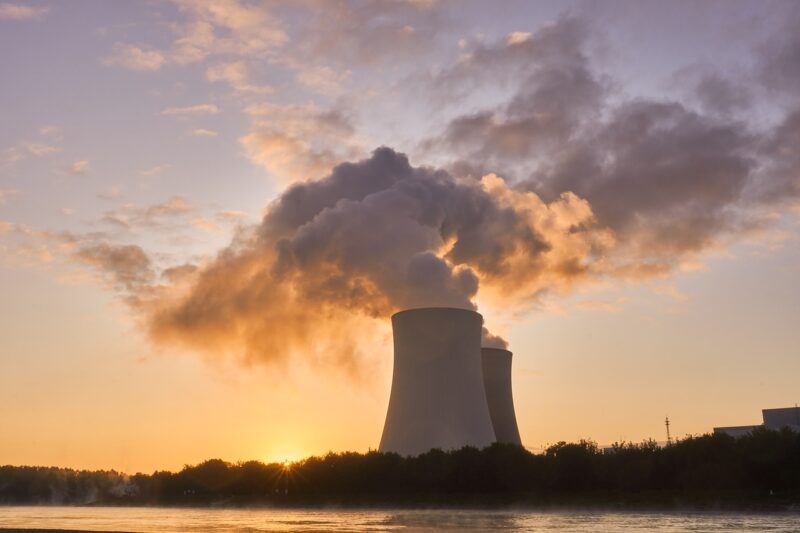
In an increasingly interconnected world, the threat of global crises stemming from the proliferation of nuclear weapons looms large. Whether through state actors seeking military advantages or rogue individuals trying to access such catastrophic power, the consequences of nuclear proliferation can be dire. The pivotal role of Non-Proliferation Agreements cannot be overstated. This article examines why these treaties are critical to maintaining global peace and security.
1. Understanding Non-Proliferation Agreements
Non-Proliferation Agreements (NPAs) are international treaties designed to prevent the spread of nuclear weapons and promote disarmament. The most notable of these is the Treaty on the Non-Proliferation of Nuclear Weapons (NPT), established in 1968 and entering into force in 1970. The NPT has three core objectives:
- Non-Proliferation: Preventing the spread of nuclear weapons and related technology to countries that do not have them.
- Disarmament: Promoting complete disarmament of nuclear weapons states to be pursued in good faith.
- Peaceful Use of Nuclear Energy: Facilitating the right of all countries to develop nuclear energy for peaceful purposes under strict safeguards to prevent misuse.
Non-proliferation agreements create a framework for international cooperation and accountability among nations, providing a shared understanding of how to deal with nuclear threats.
2. The Threat of Nuclear Proliferation
The consequences of unchecked nuclear proliferation can lead to catastrophic global crises. The threats can take various forms:
- Increased Military Tension: When nations begin pursuing nuclear capabilities, it can lead to arms races, where neighboring countries feel compelled to develop or improve their arsenals to maintain a balance of power. This creates an environment of mistrust and fear that can escalate military tensions.
- Terrorism Concerns: The proliferation of nuclear weapons can increase the risk of terrorism, as extremist groups may seek to acquire nuclear materials or technology for malicious purposes. The potential for a nuclear attack by a non-state actor presents a terrifying scenario.
- Environmental Catastrophes: Using nuclear weapons leads to devastating environmental consequences. Fallout could affect entire regions, leaving land uninhabitable and causing long-term health issues among populations.
The necessity for strong regulatory frameworks, like NPAs, to curtail these threats cannot be understated.
3. Success Stories of Non-Proliferation Agreements
Numerous historical examples illustrate how non-proliferation agreements have successfully mitigated the dangers of nuclear proliferation:
- South Africa: South Africa voluntarily dismantled its nuclear weapons program in the early 1990s and became a signatory to the NPT. This decision not only eliminated a regional threat but also set a powerful precedent for others.
- Ukraine, Belarus, and Kazakhstan: Following the Soviet Union’s collapse, these nations inherited nuclear arsenals. Through negotiation and the Budapest Memorandum, they agreed to relinquish their nuclear weapons in exchange for security assurances from major powers. This led to greater security and stability in Eastern Europe.
- Iran Nuclear Deal (JCPOA): The Joint Comprehensive Plan of Action aimed to limit Iran’s nuclear capabilities in exchange for sanctions relief. Although its future remains uncertain, it underscored the importance of diplomatic efforts in non-proliferation.
These successes highlight the potential of non-proliferation frameworks to yield positive outcomes in confronting the nuclear threat.
4. Challenges Facing Non-Proliferation Agreements
Despite their successes, Non-Proliferation Agreements face numerous challenges that threaten their effectiveness:
- State Compliance Issues: Some countries pursue secret nuclear programs or withdraw from treaties when it suits them. Ensuring compliance is a persistent challenge that requires constant vigilance and international cooperation.
- Technological Advancements: Advances in technology and knowledge can enable states and non-state actors to develop nuclear capabilities clandestinely. Cybersecurity threats can also jeopardize sensitive information related to non-proliferation efforts.
- Political Will: Geopolitical tensions can undermine the commitment of states to adhere to agreements. Political uncertainties can lead to a decreased prioritization of non-proliferation efforts.
Addressing these challenges is crucial for the continued effectiveness of non-proliferation frameworks.
5. The Path Forward: Strengthening Non-Proliferation Agreements
For Non-Proliferation Agreements to remain effective in preventing global crises, several steps should be pursued:
- Enhancing Verification Mechanisms: Strengthening monitoring systems can help to verify compliance and deter potential violations of non-proliferation agreements. More resources should be allocated for inspections and monitoring activities by organizations like the International Atomic Energy Agency (IAEA).
- Promoting International Cooperation: Dialogue among nations is essential for addressing concerns related to non-proliferation. Cooperative measures that include technical assistance and information exchange can foster trust and transparency.
- Educating the Public: Raising awareness about non-proliferation efforts and their importance can create public support for these initiatives. Grassroots movements and activism can pressure governments to prioritize disarmament and compliance tasks.
By adopting a multipronged approach, the global community can strengthen NPAs and create a safer world, free from the looming threat of nuclear crises.
Conclusion
In conclusion, the critical role of Non-Proliferation Agreements in preventing global crises cannot be overstated. The continued proliferation of nuclear weapons represents one of the most significant threats to security and peace on our planet. By fostering international cooperation, promoting compliance, and strengthening verification frameworks, nations can work together to prevent the catastrophic consequences of nuclear proliferation.
Through concerted efforts, we can bridge divides and create a globally unified front against nuclear threats, ensuring a safer and more secure future for generations to come.







